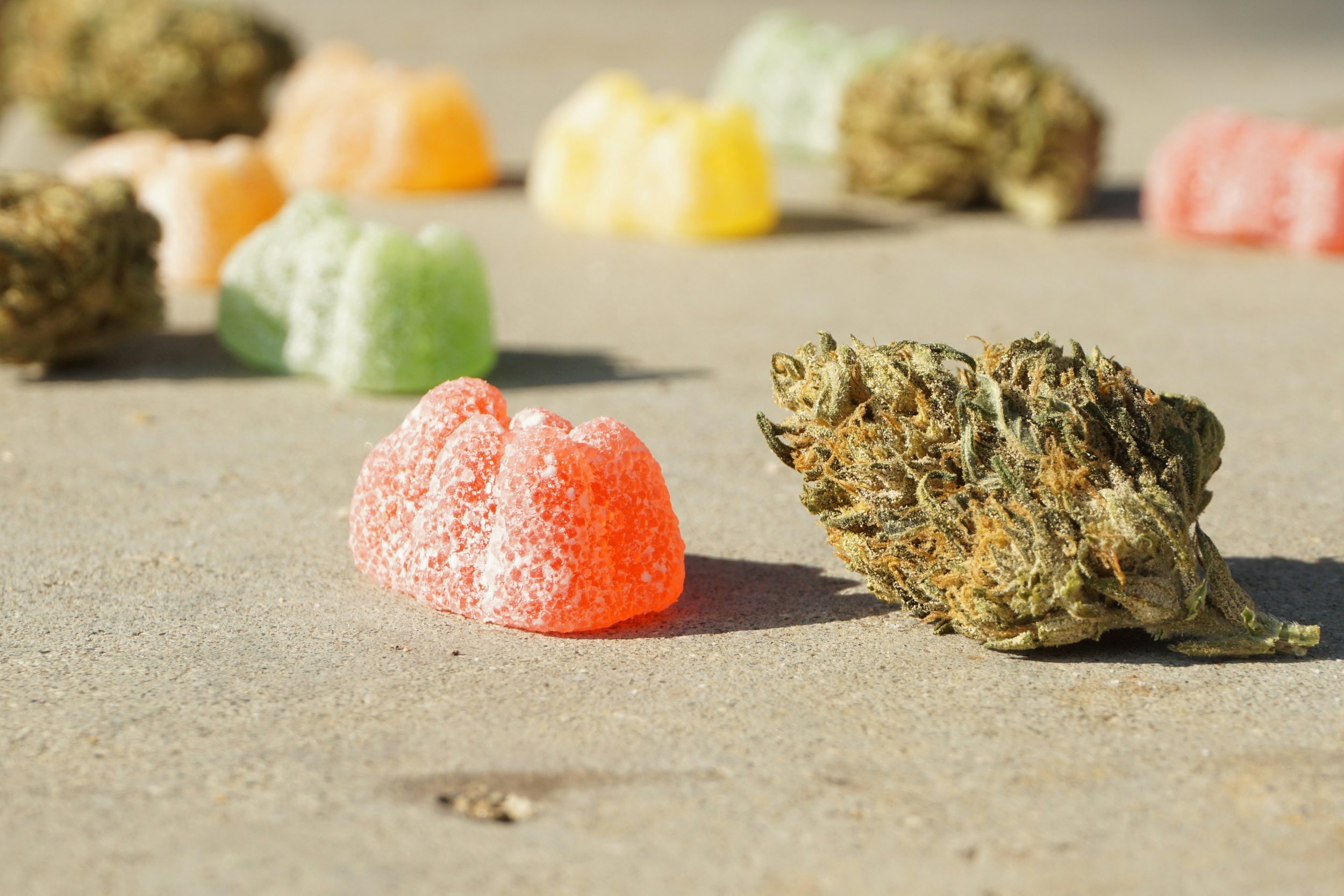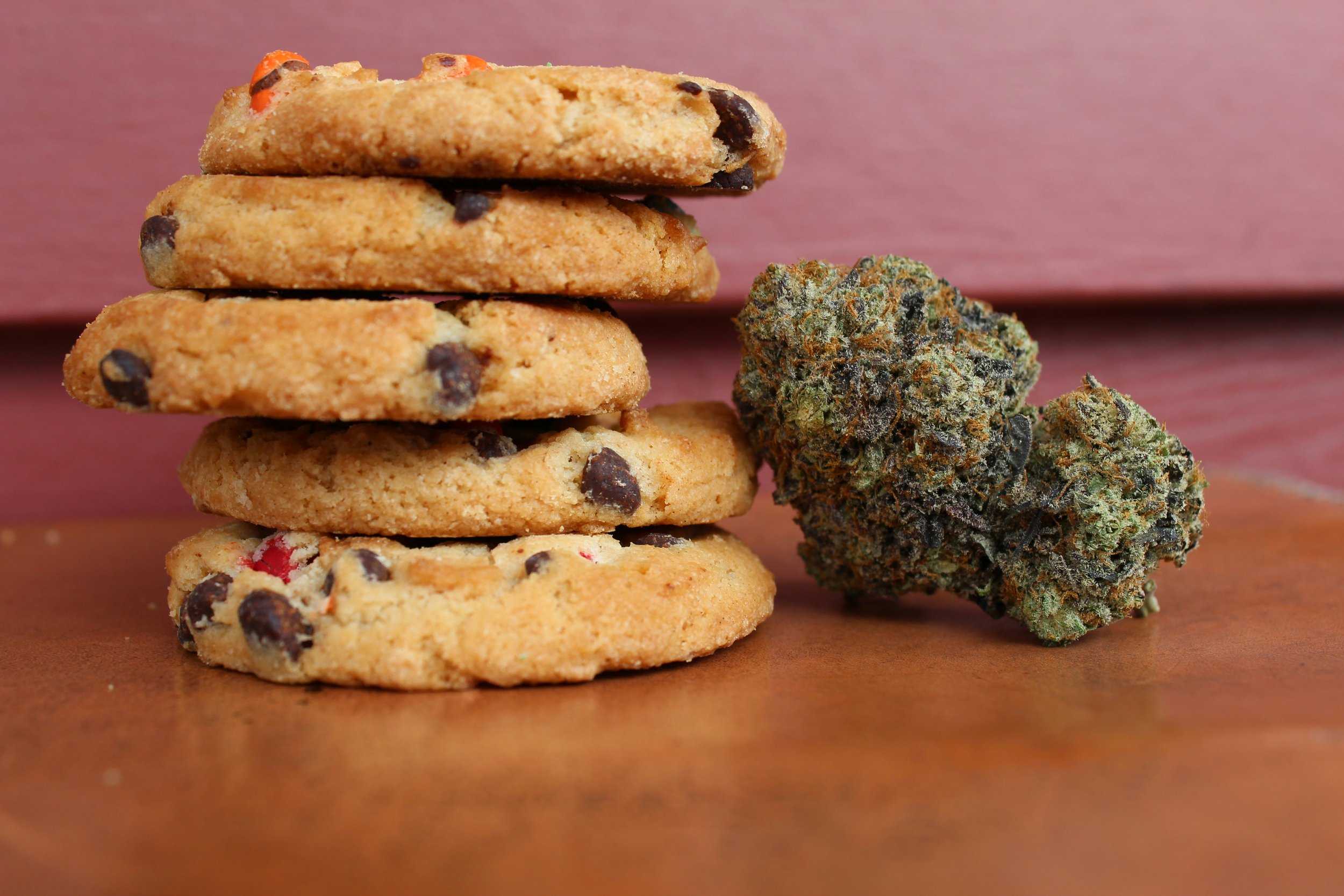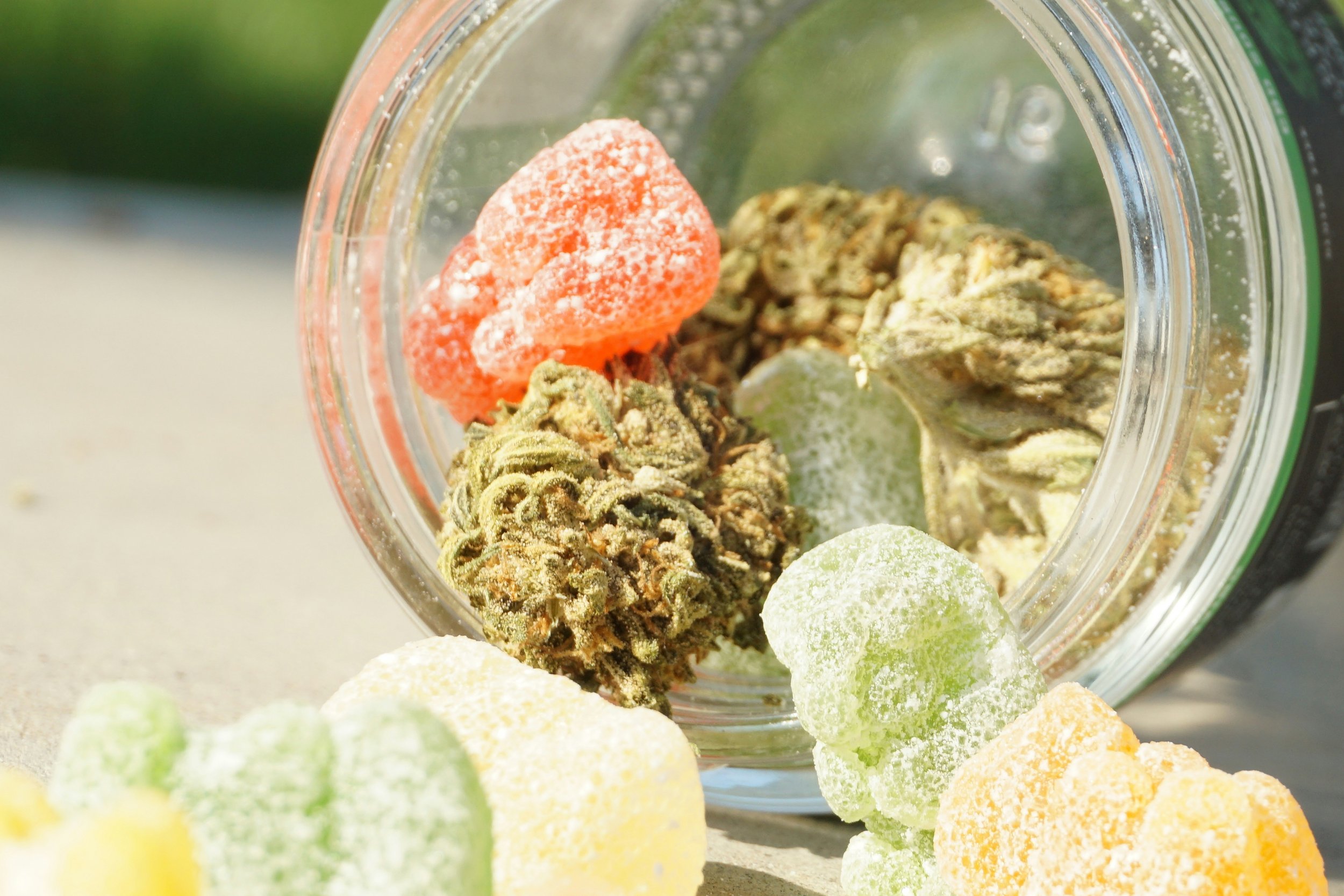Why Cannabis Edibles Don't Work on You
Photo by Elsa Olofsson on Unsplash
Ever found yourself in the perplexing situation of consuming a cannabis edible only to feel its effects fall short? You're not alone. This article aims to unravel the mysteries behind why some individuals may not experience the anticipated effects of cannabis-infused edibles. This topic frequently surfaces in discussions on my social platforms, prompting a deeper exploration here.
Understanding these nuances is vital, not just for refining personal consumption habits, but also for making informed decisions about cannabis products. By uncovering the reasons why edibles may not deliver the expected results for certain individuals, readers can navigate their cannabis consumption experiences more effectively. Join me as we dive into this intriguing aspect of cannabis consumption, aiming for clarity and insight.
Key Takeaways
Understanding individual factors such as metabolism and tolerance is crucial for optimizing the effects of cannabis edibles.
Experimentation, starting with low doses, and gradually titrating up can help individuals find their optimal dosage.
Seeking professional advice, especially for beginners or those with specific health considerations, is recommended to ensure a safe and enjoyable edibles experience.
Photo by Margo Amala on Unsplash
Lack of CYPC29 Enzyme
The CYPC29 enzyme, also known as cytochrome P450 2C9, is a crucial component of liver metabolism responsible for processing various compounds, including cannabinoids found in cannabis. CYPC29 plays a significant role in metabolizing tetrahydrocannabinol (THC), the primary psychoactive compound in cannabis, as well as other cannabinoids like cannabidiol (CBD).
When cannabis is ingested, whether through smoking, vaping, or consuming edibles, the cannabinoids enter the bloodstream and are eventually transported to the liver. Here, CYPC29 breaks down these cannabinoids into metabolites that can be eliminated from the body through urine or feces.
Impact on Response to Edibles
Individuals with insufficient levels of CYPC29 may face challenges in efficiently metabolizing cannabinoids. Consequently, they may experience prolonged or altered responses to cannabis consumption, including edibles. This variation can lead to differences in the onset, duration, and intensity of the effects experienced, potentially contributing to the perception that cannabis edibles are ineffective.
FAQ’s
-
Certain demographics may be more likely to have variations in the activity of the CYPC29 enzyme. These differences can be attributed to genetic factors, environmental influences, and overall health status. While research on specific
demographic groups lacking CYPC29 activity is ongoing, some factors may contribute to variations in enzyme function:
Genetic Variability: Genetic factors play a significant role in determining enzyme activity levels. Variations in the genes responsible for encoding the CYPC29 enzyme, such as CYP2C9 gene polymorphisms, can lead to differences in enzyme function among individuals. Certain ethnic or racial groups may have a higher prevalence of specific genetic variants associated with altered enzyme activity.
Age: Enzyme activity levels can vary with age, with younger individuals typically exhibiting higher enzymatic function compared to older adults. However, aging-related changes in liver function and metabolism may affect CYPC29 activity differently among individuals, leading to variations in cannabinoid metabolism.
Liver Health: Liver health plays a crucial role in enzyme function, as the liver is the primary site of metabolism for cannabinoids. Conditions that affect liver function, such as liver disease, cirrhosis, or hepatitis, can impact CYPC29 activity and overall metabolism of cannabinoids. Individuals with liver impairments may experience alterations in the metabolism of cannabis edibles.
Medications: Certain medications can influence enzyme activity levels, including those that inhibit or induce the activity of CYPC29. Individuals taking medications that interact with this enzyme may experience alterations in cannabinoid metabolism and response to cannabis edibles. It's essential to consider potential drug interactions when consuming cannabis products, particularly for individuals taking medications that affect liver function.
-
Individuals with reduced CYPC29 activity may exhibit various responses to cannabis edibles, including:
Delayed Onset of Effects: They may experience a delayed onset of effects compared to others, indicating slower metabolism and clearance of cannabinoids from the body.
Prolonged or Intense Effects: Some may experience prolonged or intensified effects, such as a longer duration of psychoactive effects or increased sensitivity to cannabinoids, potentially lasting beyond the expected duration for other users.
Inconsistent Responses: Variations in response within the same dose range may occur, with some individuals experiencing minimal effects while others have significantly stronger responses.
Adverse Reactions: Those with impaired cannabinoid metabolism may be more prone to adverse reactions or side effects from cannabis edibles, such as dizziness, nausea, or anxiety, which may occur at lower doses or persist for longer durations.
Medical History Considerations: Individuals with underlying medical conditions affecting liver function or metabolism, such as liver disease or genetic disorders, may be at a higher risk of CYPC29 deficiency.
Additionally, a history of medication use that interacts with CYPC29 or other liver enzymes may indicate potential enzyme-related issues.
2. Timing of Consumption
The timing of consumption plays a crucial role in determining the effectiveness of cannabis edibles. Consuming edibles late at night can often result in diminished effects due to various factors such as slower metabolism and increased fatigue.
Typically, it takes around 30 minutes to 2 hours for edibles to take effect, but this can vary depending on factors like metabolism, body composition, and the individual's tolerance level. Optimal times for consuming cannabis edibles are typically during the daytime or early evening when individuals are more likely to be awake, active, and able to enjoy the effects without being hindered by fatigue or sleepiness.
Planning consumption during times of higher metabolic activity can also enhance the absorption and onset of effects, leading to a more predictable and enjoyable experience.
Photo by Elsa Olofsson on Unsplash
Learn how to make decarb and infuse the special herb in the comfort of your own home! In this 30 page digital guide, Cannabinista breaks down the science of decarboxylation, how to calculate the potency of your homemade infusions, and provides step-by-step guide on how to infuse olive oil, butter, and coconut oil with the traditional oven and stove method, or with modern devices like the LEVO.
After learning the basics to infusing at home, take those learnings and make Cannabinista’s top recipes - canna powder, infused chili oil, infused coffee, and even topicals like a canna muscle cream!
For a limited time only, all purchasers will be entered to win a brand new LEVO C ($299 USD value)! This is an offer you definitely don’t want to miss. So what are you waiting for? Join me on an elevated cannabis infusion journey today!
3. Consumption on an empty stomach
Consuming cannabis edibles on an empty stomach can sometimes result in a lack of THC experience for individuals who find themselves not feeling the effects of the edible. Having food or fat in the stomach helps metabolize edibles more efficiently, as the cannabinoids in cannabis are fat-soluble compounds.
Consuming foods rich in fat before taking edibles can aid in the absorption of cannabinoids, potentially leading to a more controlled and gradual onset of effects. Some recommended types of food to consume before taking edibles include those high in healthy fats, such as:
Avocados
Nuts
Seeds
Fatty fish
These foods can provide the necessary fat content to facilitate the absorption of cannabinoids and promote a more balanced experience.
Photo by Elsa Olofsson on Unsplash
4. Dosage Considerations
Some individuals may not feel the effects of cannabis edibles due to various factors that can affect the absorption and metabolism of cannabinoids in the body. Factors such as individual metabolism, tolerance levels, body composition, and previous cannabis experience can all play a role in how an individual responds to edibles.
Additionally, inconsistencies in the dosage or potency of the edibles can contribute to a lack of effects. In some cases, consuming edibles on an empty stomach or at times when metabolic activity is low, such as late at night, can also result in diminished effects. Individuals need to be mindful of these factors and consider them when consuming edibles to ensure a more predictable and enjoyable experience.
Making your own edibles? Calculate your dosage with my dosage calculator.
Conclusion
In conclusion, several factors can contribute to why cannabis edibles might not work for some individuals. These include variations in metabolism, tolerance levels, inconsistent dosages or potency, and timing of consumption. Understanding one's own body and needs is paramount when consuming edibles, as it allows individuals to make informed decisions about dosage, timing, and consumption habits.
It's essential to approach edibles with caution, start with low doses, and gradually titrate to find the optimal balance for one's desired effects. Experimentation can help individuals discover what works best for them, but seeking professional advice, especially for those new to cannabis or with specific health considerations, is always advisable. By taking a proactive and informed approach, individuals can maximize the benefits of cannabis edibles while minimizing the risks.
Additional Resources:
Explore a variety of helpful tools and resources to improve your cannabis experience on The Cannabinista's website.
Cannabis Infusions Guide: Ideal for beginners eager to delve into the world of cannabis infusions, this comprehensive guide offers step-by-step instructions and valuable tips. Link: Cannabis Infusions Guide
Dosage Calculator: Take the guesswork out of dosing with our user-friendly calculator, ensuring a safe and enjoyable edibles experience. Link: Dosage Calculator
Cannabis Education Blog: Explore a wealth of knowledge on cannabis-related topics, from consumption methods to health benefits, through our informative blog posts. Link: Cannabis Education Blog
Infused Recipes: Elevate your culinary adventures with our collection of delectable infused recipes, perfect for adding a touch of cannabis creativity to your kitchen. Link: Infused Recipes
Promo Codes for Cannabis Goodies: Unlock exclusive discounts on premium cannabis products with our promo codes, enhancing your journey into the world of infused delights. Link: Promo Codes for Cannabis Goodies



